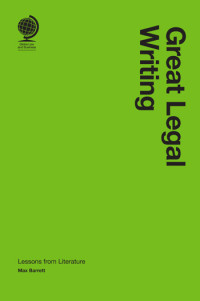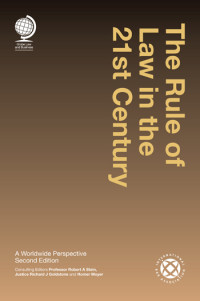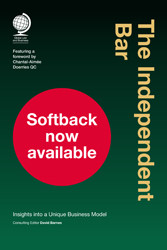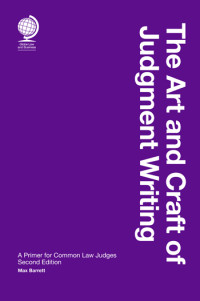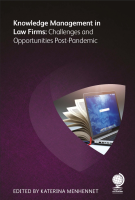
Author(s): Max Barrett
Publication date: Feb 2023
Format: Hardback
Pages: 293
Price: £75.00
ISBN: 9781787429499
How our eBook platform works
How permanent access, multi-user eBooks work
In this highly original book, Justice Barrett has drawn together an astonishing amount of material. This is an important contribution to the field of law and literature.
,
This book will help guide anyone involved in legal writing to hone their writing skills, while providing an engaging tour through the works of great authors from the past.
,
This books provides key lessons on legal writing...a useful resource for lawyers, judges and academics interested in developing their legal prose.
,
Every now and then I have the privilege of reading a book in which the author’s breadth of knowledge and elegance of prose take my breath away… It would be a mistake to think this book is merely an examination of great authors and how their thoughts on writing can add to the creation of modern legal prose. Justice Barrett provides practical advice on how to craft effective legal writing, stating the importance of meticulous research, legal analysis, brevity, and giving a solution to everyday problems. At the end of the book, he provides a code of legal writing which consolidates the main points of the text.
,
As with his previous book, this volume repays study by anyone engaged in legal writing, however remote might be their claims or ambitions of greatness.
,
Legal prose is often a more pedestrian venture than a novel or a poem. However, even the pedestrian can be done well. The views of the professional writers considered in this book identify how lawyers can write legal prose well, and sometimes even beautifully.
This book provides key lessons on legal writing that can be gleaned from various leading authors of the past and brought to bear in crafting more polished legal texts. Among the great authors considered are Joseph Conrad, Guy de Maupassant, E.M. Forster, Thomas Hardy, Henry James, D.H. Lawrence, Robert Louis Stevenson and Virginia Woolf. Central themes identified are:
- Legal writing should never be too difficult to understand;
- Great writers have much to teach the legal writer;
- Good writing requires hard work;
- Professional jargon is generally best avoided; and
- The truth is always pure, often simple, and generally best expressed in plain English.
This book contains invaluable guidance to help all those involved in legal writing to hone their writing skills, while providing an engaging tour through the works of great authors from the past.
All after-tax author royalties from this book will be donated to the Ukrainian relief efforts of the International Red Cross and Red Crescent movement.




